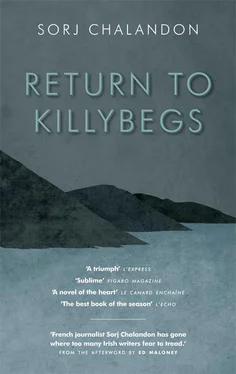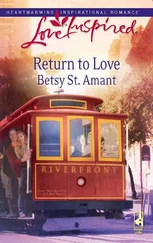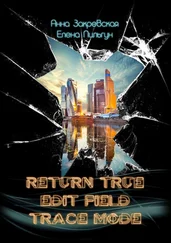
Another couple besides us had won the trip to France. Frank and Margaret lived in Larne, a port town in County Antrim.
— Protestants, certainly Loyalists, but delightful, Sheila had said.
We all travelled together on the plane to London, and then on the plane to Paris as well. Sheila was beside the window, as was Margaret in the seat just in front of ours. Since takeoff, she’d turn and lean on her elbows on the back of her seat to talk to my wife. She’d say a few words, tell a story, sit down again, and reappear with a smile on her lips.
— She has a charming wee English accent, Sheila observed.
She was so happy that nothing else mattered. Through the window we had watched our city, our dreary streets, the Harland and Wolff shipyard, our sodden fields and the low stone walls disappear, and then came the wide open sea. She thought she was reaching her hand out to me, but it was I who was gripping hers. This was our first flight. Margaret had given her a sweet to suck for takeoff.
— So these two Belfast youths are on their honeymoon in Paris. One night, they’re walking along the Champs Élysées when, suddenly, four police cars, three fire engines and two ambulances appear with sirens blaring. The husband takes his young wife by the hand then and says to her: ‘Do you hear that love? They’re playing our song…’
Sheila laughed. It had been so long since I’d seen her laughing.
— If she’s bothering you, feel free to tell her, her red-haired husband slipped in. That’s how I’ve been operating for twenty years.
— Not at all, your wife is charming, Sheila replied.
Away from our street, everything was charming to her. The sandwich on board was one of the best she’d ever had. Tuna and mayonnaise, absolutely remarkable. As we were going to France, she drank white wine that came in a little plastic bottle. So delicious she wanted to keep the bottle as a souvenir.
— Call me Maggie, our travel companion suggested.
It was Thursday, 2 April 1981. For thirty-three days, Thatcher had been letting Bobby Sands die.
— I’m going to find that a bit hard, Sheila said, smiling.
The other woman took my wife’s hands in hers.
— My God, what was I thinking? Please forgive me!
Charming, really. They agreed then that we wouldn’t talk about politics during the trip, or religion, either. How about visiting Notre Dame with us? Margaret spoke loudly. She told Sheila that they ought to organize a girls’ night out. Just the two of them. She asked her whether she liked opera. Sheila smiled. Yes, maybe, she didn’t know.
When she discovered that she’d won the contest, Margaret had phoned her aunt who lived in a Parisian suburb. She wanted to find out what was playing on 4 April at the Palais Garnier opera house. It was Arabella by Richard Strauss, a lyric comedy she had seen performed in Germany on her honeymoon. In the last act, Arabella carries a glass of water to the man she loves. That’s how they proposed in Croatia. For weeks afterwards, Margaret carried a glass of water to Frankie, her husband. In the morning, in the evening, it was a private joke between them. When she found out that the same opera was playing in Paris, she asked her aunt to pick up two tickets, but Frankie’s response had been to inform her that he wasn’t going to Paris to lock himself up in a cinema.
— An opera, Margaret had corrected.
He had muttered a few words that amounted to ‘No’. So if Tyrone had no objections, and if Sheila wanted to, perhaps the two of them could go together while the two gents went to get some air in Pigalle or in a bar. Sheila gave the thumbs up. Yes! Definitely! Listen to music, see beautiful costumes, sets, lights, forget the bricks and the fear for a couple of hours.
Frankie was delighted. He was getting out of going to an opera and also we’d have a couple of hours, just us lads. He bought beers for everyone. The air hostess gave him his change in francs. He looked at a shiny coin and handed it to Sheila.
— You’re going to feel right at home in Paris.
Sheila didn’t understand what he meant straight away. She took the coin.
Republique Française.
— Keep it. It’s a wee peace offering, whispered the red-haired handler.
Sheila took off her safety belt. She got up and kissed him on the cheek.
— If that’s the reward, I’ll give you a ten-franc note!
He burst out laughing, along with Margaret, and Sheila.
My stomach was in knots. The big Sanderson Store lottery was a fraud, a war plan, a lure. No new department store would ever be built in our ghetto. Hundreds of fake flyers had been printed by the British, but the winners were fixed from the start.
The plane flying towards Paris had a Northern Irish RUC officer, a female Special Branch inspector, a future traitor and an honest woman on board. It was an MI5 idea. And I had accepted. When I arrived home, when I placed that flyer next to the telephone, I was betraying Sheila for the first time.
On Saturday, while the two girls went to the opera, I would become a British agent. I felt like the entire aeroplane had been chartered by the secret services. I saw spies everywhere, soldiers everywhere, traitors behind every newspaper.
— Our first real contact will take place in Paris. It’s safer, more anonymous. And it means you’ll get a holiday, the agent had said.
He also explained I’d have to go back there from time to time.
— Tyrone?
My wife’s hand on my arm. She was pointing out the ground, between the gaps in the clouds. She had tears in her eyes. The plane was banking over Paris. The city shimmered under the wing. I fastened my belt. Our eyes met. She was silently questioning me.
— Something wrong, wee man?
— Everything’s fine, tall woman.
She brought her lips close to my ear. A murmur.
— I love you.
And I said I loved her, too.

The British had decided that we’d lose ourselves in the crowd. They knew there were demonstrations going on in Paris that 4 April 1981. We joined the noisy procession. It didn’t look like one of our marches. No children, no funeral wreaths, no soldiers, either. There were balloons, whistles, songs. Some men were wearing girls’ hats, and some women had men’s ties around their necks. I wasn’t terribly comfortable, but neither was I embarrassed. With my cap, my trousers that were too short, my tweed jacket and my padded anorak, I was simply out of place in this city.
The red-haired handler was on my left, the agent to my right. We were speaking normally, our foreign language unnoticed thanks to the din. It was sunny. My two enemies were wearing sunglasses.
— You’re not in a position to negotiate, Tyrone. But we have reviewed your requests.
It was the agent speaking.
— Nobody becomes a good agent through blackmail or coercion. Those who have been threatened crack by their second assignment. We want to establish a different relationship with you.
— We want you to benefit from it, the handler added.
— Me to benefit?
I shrugged my shoulders. A boy was playing the trumpet as he marched.
— You to benefit, yes. I’m not suggesting you’ll enjoy it, but maybe you’ll find some satisfaction.
— Your collaboration will not lead to arrests or victims. Your information will serve to save lives, not to waste more.
— Is that a promise?
The handler looked at me.
— I promise, yes.
Two laughing youths blew me a kiss. I pulled my cap down low over my eyes.
— From now on, I’ll be ‘Waldner’. This will be my code name and the only one you’ll use, the agent said.
Читать дальше













